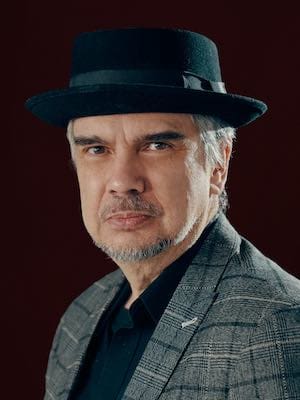Desi Arnaz played the role of Ricky Ricardo in the popular 1950s sitcom “I Love Lucy.”
Hanging on his dressing room door was a sign that read, “English is broken here.”
For those of us who are Hispanic, our “broken” English serves as a reminder that we do not belong.
And even when some of us attempt to assimilate, we will continue to be outsiders, strangers – regardless how many generations we have been present in the land.
For many Hispanics, their presence in the United States was due to the borders crossing them.
For others, like me, we are here because of 20th-century gunboat diplomacy.
Today, many are pulled here by this country’s insatiable thirst for cheap labor.
Most of us reveal ourselves the moment we open our mouths. Once our “broken” English is detected, we are relegated to marginality, facing hostile congressional laws and proposals unless we can certify our belonging – our “legality.”
Yet even when we are “legal,” we remain unheard.
So, what price do we pay when English is broken here? How does the dominant culture hear Hispanics? And how does the act of hearing create, maintain and sustain oppressive structures?
Language is more than a collection of words. It is a conveyer of concepts. Latina and Latino identity is not derived by any given race (we are black, white, yellow, red, brown and every possible combination thereof), but rather from our culture that facilitates the ability to speak Spanish.
Even when some of us do not speak Spanish, we remain tied to a Spanish-based culture.
Unlike other groups who consciously attempted to assimilate to the mainstream, most Hispanics have stubbornly refused to forsake their native tongue.
To the dominant culture, our language represents the ethnic stubbornness that resists assimilation. Latinas and Latinos by choice continue to preserve their language by passing it to the next generation.
With the act of speaking Spanish, Hispanics place themselves in direct conflict with the sociopolitical structures that would have us articulate self-oppressive expression with each linguistic utterance.
Hispanics who wish to produce successful discourse so as to participate more fully in the structures of society must observe the cultural capital of that society, which is to speak a fluent English.
To prove the point, the reader will note that I am not writing this article in my native tongue. To do so is to not be heard.
Asserting one’s ethnic language, or speaking the dominant language with an accent, usually disqualifies the speaker from social advancement.
Regardless of the effort exhausted, the attempt to speak English properly is viewed by others as a parody.
Thus, our inability to master the dominant language signifies us in a symbolic system that we will never command; rather, it is a system that commands us.
Defenders of English as the official language often insist on its predominance because of some alleged intrinsic virtue.
In reality, they are defending their position of power. Power need not be overtly exercised.
Rather, power can be transmuted into a symbolic form through the routine flow of day-to-day life, which is forced to be conducted in the language of the dominant group.
This process empowers the dominant group by bestowing a kind of legitimacy. Language, as a symbolic power, presupposes the values of the dominant culture in such a way that Latinas and Latinos speaking English participate in their own subjection.
Still, to insist as Hispanics upon the validity of our own language dooms us to being oppressed because English is a precondition for economic and political success. And yet, where there is repression, resistance exists.
Speaking Spanish presents a horror to the dominant culture: namely, that a person might one day succeed financially and politically without needing to communicate in English.
As long as Hispanics were an insignificant minority, they could be heard as an exotic other from a tropical culture that, while bizarre or strange, is still amusing to observe.
But as demographic shifts took place in the last 20 years making us the largest U.S. ethnic group, we went from being paternalistically stereotyped as hard-working, family-oriented people from a noble race to being dangerous “illegals” bent on robbing, killing and raping true Americans.
According to a 2011 demographic study conducted by the Brookings Institution, Hispanics represented 41 percent of the population growth in the nation’s largest metropolitan areas during the past decade – while white populations continued to stagnate.
Hispanics went from representing 11 percent of metropolitan areas in 1990 to 15 percent in 2000 to 20 percent in 2010.
These major metropolitan areas added 11 million Latinos and Latinas, 4 million Asians, 3 million African-Americans and about 400,000 whites.
The old white-black paradigm of race analysis is at best obsolete and soon to be replaced with a Spanish-English demarcation.
“English only” legislation offered throughout this country is an attempt by the dominant group to curb this perceived threat.
So I ask: ¿Podemos hablar?
MiguelA. DeLaTorre is professor of social ethics at Iliff School of Theology in Denver.
Professor of Social Ethics and Latinx Studies at Iliff School of Theology in Denver, Colorado, and a contributing correspondent at Good Faith Media.

